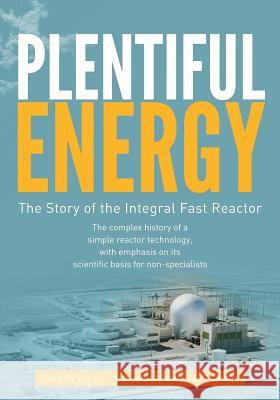topmenu
Wyniki wyszukiwania:
wyszukanych pozycji: 2
 |
Clinical ECGs in Paramedic Practice
ISBN: 9781859598696 / Angielski / Miękka / 2021 / 296 str. Termin realizacji zamówienia: ok. 8-10 dni roboczych. |
cena:
219,12 |
 |
Plentiful Energy: The Story of the Integral Fast Reactor: The Complex History of a Simple Reactor Technology, with Emphasis on Its Scien
ISBN: 9781466384606 / Angielski / Miękka / 2011 / 404 str. Termin realizacji zamówienia: ok. 16-18 dni roboczych. The Integral Fast Reactor (IFR) is a fast reactor system developed at Argonne National Laboratory in the decade 1984 to 1994. The IFR project developed the technology for a complete system; the reactor, the entire fuel cycle and the waste management technologies were all included in the development program. The reactor concept had important features and characteristics that were completely new and fuel cycle and waste management technologies that were entirely new developments. The reactor is a "fast" reactor - that is, the chain reaction is maintained by "fast" neutrons with high energy -...
The Integral Fast Reactor (IFR) is a fast reactor system developed at Argonne National Laboratory in the decade 1984 to 1994. The IFR project develope...
|
cena:
56,87 |










